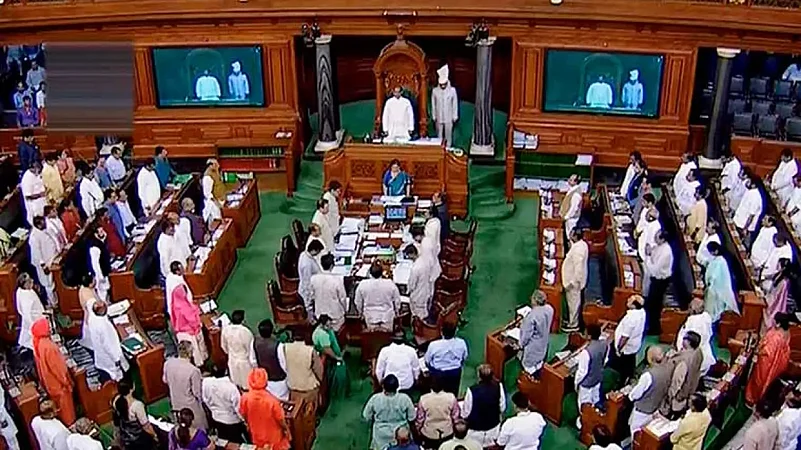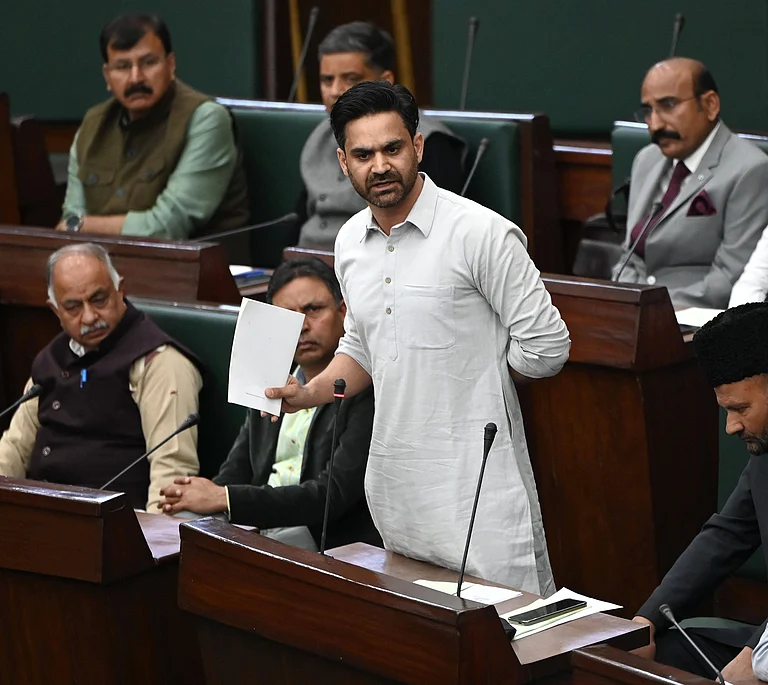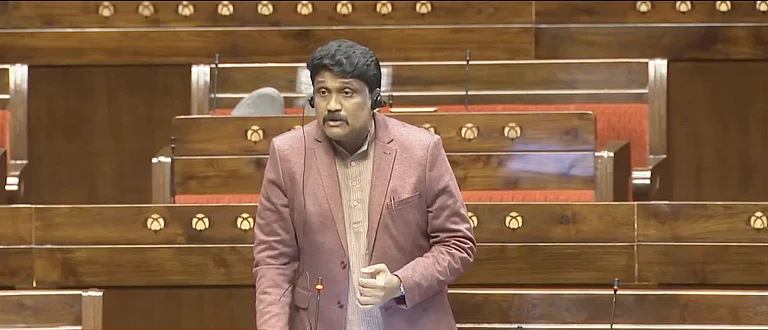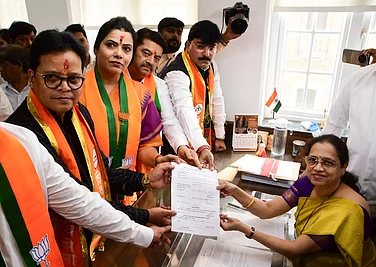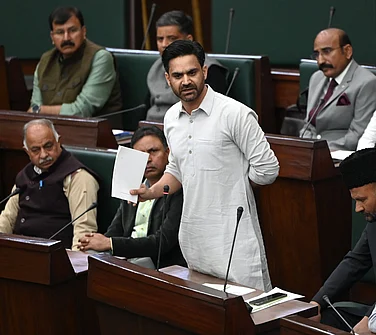The Winter Session of Parliament, which was adjourned sine die on Friday six days ahead of schedule, is the eighth consecutive session to be cut short, data compiled by a legislative think tank showed.
The session began on December 7 and was scheduled to end on December 29. However, members requested the government and the presiding officers of both the Houses -- Rajya Sabha and Lok Sabha -- to end the proceedings early citing the festive season and New Year celebrations according to the government.
"This session was for 13 days. It was one of the shortest in the 17th Lok Sabha, with the other being the 2020 Monsoon Session (10 days) held during the Covid pandemic," according to the data compiled by PRS Legislative Research in a reports.
"For the last eight consecutive sessions, Parliament has been adjourned ahead of schedule. Thirty-six planned sitting days have been lost due to early adjournments in this Lok Sabha. This year, Parliament has had 56 sittings," it said.
Over the last 50 years, the number of sittings of Parliament has been declining and has halved since the 1950s and the 1960s, the report stated.
Since the 2020 Budget Session, all Parliament sessions have ended before their decided date, the think tank said.
In 2020, the budget and monsoon sessions were both cut short due to a surge in Covid cases. The Budget Session was cut short by 11 days, while the Monsoon Session was adjourned eight days ahead of schedule, the data stated. The winter
Session was not held that year due to the pandemic.
Last year, the Budget Session was adjourned 14 days ahead of schedule, according to the think-tank's data.
Several members in both Houses had demanded that the session -- originally scheduled to have sittings till April 8 that year -- be curtailed so that they could participate in the election process in certain states and union territories, the government had said in a statement.
The Monsoon Session last year was adjourned two days ahead of schedule and the Winter Session a day before its planned end, the data showed.
This year, the Budget Session was adjourned a day before schedule, and the Monsoon Session, four days ahead of schedule, it stated.
In this winter session, Lok Sabha functioned for 88 per cent of its scheduled time while Rajya Sabha functioned for 94 per cent of its scheduled time, according to the think-tank's report.
Both Houses saw disruptions and repeated adjournments on the penultimate day, when opposition members wanted to raise a discussion on the India-China issue.
Seven Bills were passed in this session and seven were introduced. Four Bills to amend the list of Scheduled Tribes in various states were introduced, of which two were passed.
Two of the Bills introduced, the Multi-State Co-operative Societies Bill, 2022, and the Jan Vishwas (Amendment of Provisions) Bill, 2022, have been referred to Joint Parliamentary Committees.
Lok Sabha Speaker Om Birla said there was consensus among floor leaders of all parties to cut short the Winter Session of Parliament.
"In the Business Advisory Committee (BAC) meeting of Lok Sabha, there was consensus among floor leaders of all political parties to cut short the session," he told reporters here.
Birla's remarks assume significance as they come against the backdrop of several opposition leaders alleging that the government has been curtailing Parliament sessions.
In Rajya Sabha, Chairman Jagdeep Dhankhar said the productivity of the House was 102 per cent. The House held 13 sittings totalling 64 hours 50 minutes.
The Lower House spent around 11 per cent of its time in Question Hours, a total of 7.7 hours, while Rajya Sabha spent 9.8 hours, around 15 per cent, of its scheduled time on questions, according to the report.
Legislative business took around 16 hours or 24 per cent of Lok Sabha's time, financial business took around 10.9 hours or 16 per cent of the total time, while non-legislative business such as debates and matters of urgent public importance took around 48 per cent of the Lower House's time.
In Rajya Sabha, legislations took around 21 hours or 32 per cent of the total time, financial business was held for around nine hours and non-legislative and other business took around 38 per cent of the Upper House's time, it stated.
So far, in the 17th Lok Sabha, out of the 130 Bills passed, 94 were introduced and passed in the same session.
Fewer Bills have been referred to committees for detailed scrutiny.
Twenty-three per cent of Bills introduced have been referred to committees. This is lower than the last three Lok Sabhas: 60 per cent in the 14th, 71 per cent in the 15th, and 27 per cent in the 16th Lok Sabha.






